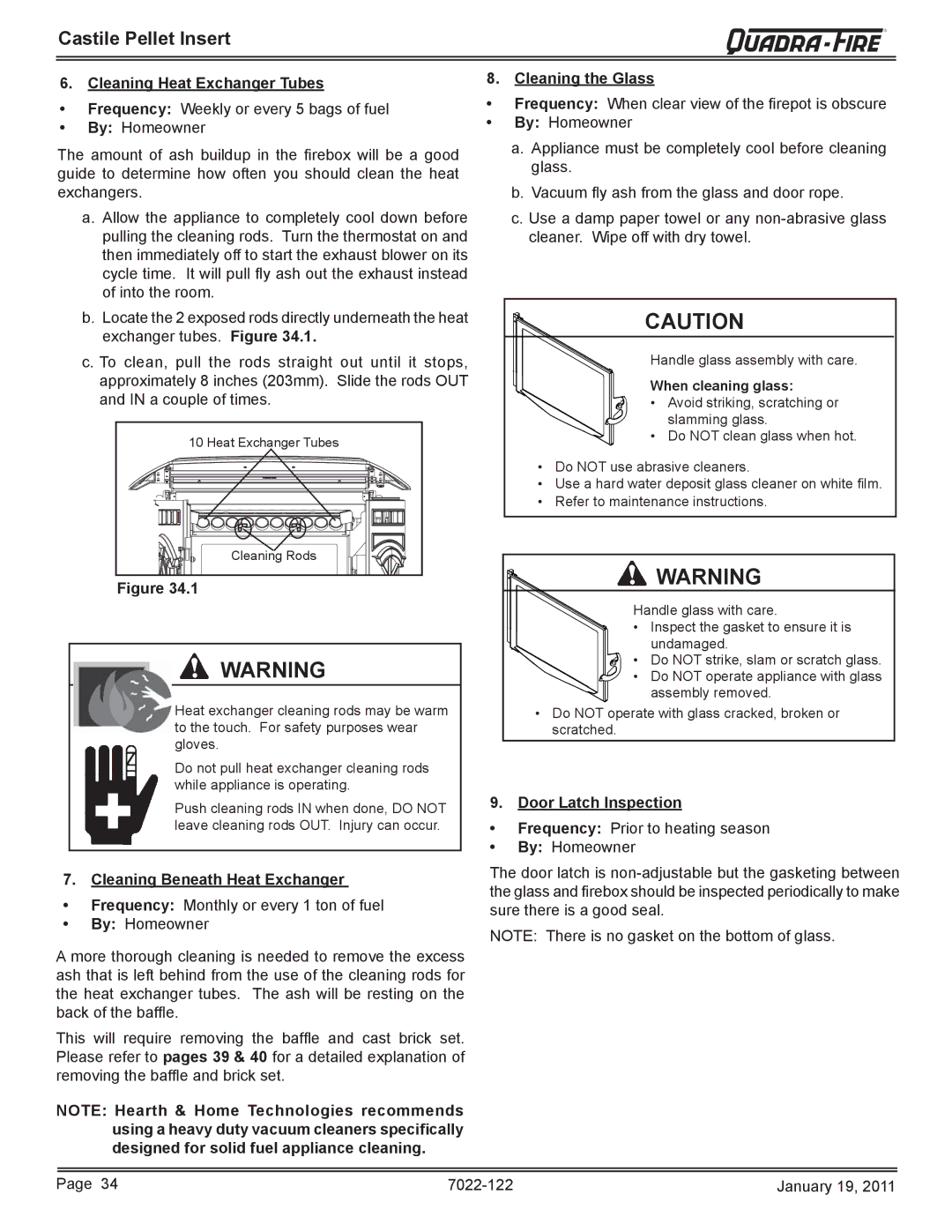
Castile Pellet Insert
R
6.Cleaning Heat Exchanger Tubes
•Frequency: Weekly or every 5 bags of fuel
•By: Homeowner
The amount of ash buildup in the fi rebox will be a good guide to determine how often you should clean the heat exchangers.
a. Allow the appliance to completely cool down before pulling the cleaning rods. Turn the thermostat on and then immediately off to start the exhaust blower on its cycle time. It will pull fl y ash out the exhaust instead of into the room.
b.Locate the 2 exposed rods directly underneath the heat exchanger tubes. Figure 34.1.
c.To clean, pull the rods straight out until it stops, approximately 8 inches (203mm). Slide the rods OUT and IN a couple of times.
10 Heat Exchanger Tubes |
Cleaning Rods |
Figure 34.1
![]() WARNING
WARNING
Heat exchanger cleaning rods may be warm to the touch. For safety purposes wear gloves.
Do not pull heat exchanger cleaning rods while appliance is operating.
Push cleaning rods IN when done, DO NOT leave cleaning rods OUT. Injury can occur.
7.Cleaning Beneath Heat Exchanger
•Frequency: Monthly or every 1 ton of fuel
•By: Homeowner
A more thorough cleaning is needed to remove the excess ash that is left behind from the use of the cleaning rods for the heat exchanger tubes. The ash will be resting on the back of the baffle.
This will require removing the baffl e and cast brick set. Please refer to pages 39 & 40 for a detailed explanation of removing the baffl e and brick set.
NOTE: Hearth & Home Technologies recommends using a heavy duty vacuum cleaners specifically designed for solid fuel appliance cleaning.
8.Cleaning the Glass
•Frequency: When clear view of the fi repot is obscure
•By: Homeowner
a.Appliance must be completely cool before cleaning glass.
b.Vacuum fl y ash from the glass and door rope.
c.Use a damp paper towel or any
CAUTION
Handle glass assembly with care.
When cleaning glass:
• Avoid striking, scratching or slamming glass.
• Do NOT clean glass when hot.
•Do NOT use abrasive cleaners.
•Use a hard water deposit glass cleaner on white fi lm.
•Refer to maintenance instructions.
![]() WARNING
WARNING
Handle glass with care.
• Inspect the gasket to ensure it is undamaged.
• Do NOT strike, slam or scratch glass.
• Do NOT operate appliance with glass assembly removed.
•Do NOT operate with glass cracked, broken or scratched.
9.Door Latch Inspection
•Frequency: Prior to heating season
•By: Homeowner
The door latch is
NOTE: There is no gasket on the bottom of glass.
Page 34 | January 19, 2011 |
